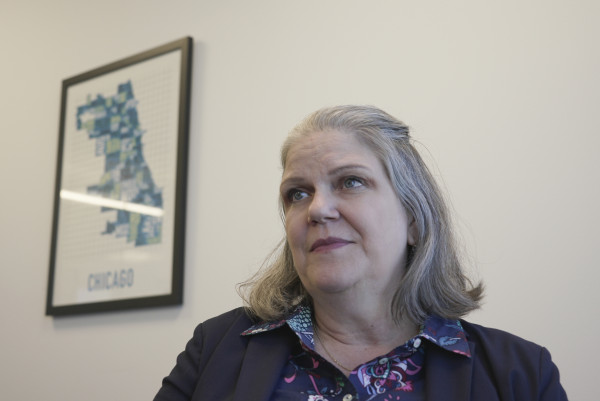Immigration Law
Wanted: Temporary immigration judges, no experience necessary

Jennifer Peyton, a former assistant chief immigration judge in Chicago, said the lawyers being brought in as temporary judges can’t be brought up to speed without appropriate training. (Photo by Laura Bargfeld/The Associated Press)
The U.S. Department of Justice is fighting a backlog of immigration cases by rolling back restrictions on who can be hired as temporary immigration judges and filling some of the positions with military lawyers.
Under a final rule published in the Federal Register, any attorney can serve as a temporary immigration judge, report Law360, NBC News and Government Executive.
Prior to the new rule, temporary immigration judges had to be former immigration judges, administrative law judges from other agencies or DOJ attorneys with 10 years of experience in immigration law.
Immigration courts overseen by the DOJ’s Executive Office of Immigration Review decide whether noncitizens accused of violating immigration laws should be removed or granted protection from removal. The backlog in the courts was about 4.1 million cases in January 2025, according to the published final rule. More than 100 immigration judges have been fired or voluntarily resigned over the last nine months, NPR reports.
According to a summary in the Federal Register, the old rule restricted eligibility for the temporary judgeships in ways “that are both somewhat inconsistent and unnecessarily siloed in terms of relevant experience.” Some examples cited: Lawyers at agencies other than the DOJ with many years of immigration law experience were ineligible to become a temporary immigration judge unless they were currently an administrative law judge. And nonfederal employees were “categorically ineligible” to serve as temporary immigration judges.
Many of the temporary jobs will be filled by military attorneys working for the Department of Defense, report Reuters, the Associated Press and NPR. According to a memo reviewed by the AP, Pete Hegseth, the secretary of the Defense Department, approved sending up to 600 of its lawyers to fill the temporary positions.
One critic of the plan is Jennifer Peyton, a fired supervising judge who oversaw weekslong training for immigration judges in Chicago, according to the AP.
Peyton didn’t think that the military lawyers could be brought up to speed without that training. She also said there is a need for more translators and administrative workers.
“None of it makes sense unless you were intentionally trying to weaken the immigration courts,” Peyton told the AP.
Write a letter to the editor, share a story tip or update, or report an error.

